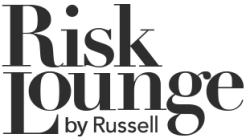
As world leaders head for the Swiss ski resort of Davos the World Economic Forum has issued a stark warning that the global economy had been badly damaged by the financial crisis.
Robert Greenhill, Managing Director and Chief Business Officer at the World Economic Forum launched the WEF Global risk report by saying the financial crisis has “drained the world’s capacity for dealing with shocks”.
“Twentieth century systems are failing to manage 21st century risks; we need new networked systems to identify and address global risks before they become global crises,” he said.
In particular, economic disparity and global governance failures are shaping the evolution of many other global risks, and inhibit our capacity to respond to them. The interconnectedness and complexity of issues mean that unintended consequences abound, and traditional risk response mechanisms often simply shift risk to other stakeholders or parts of society.
Published in cooperation with Marsh & McLennan Companies, Swiss Reinsurance Company, the Wharton Center for Risk Management and Zurich,Global Risks 2011 draws on the insights of 580 expert respondents to the Forum’s Global Risks Survey 2010 across stakeholder groups and regions, measuring perceptions of risk likelihood, impact and interconnections for 37 global risks over a 10-year time horizon. The results of this survey are included in the report. Global Risks 2011 also provides insights on a number of emerging risks and outliers to this year’s global risk landscape that could surprise us in the future.
Through a combination of quantitative and qualitative survey methodologies,Global Risks 2011 concluded that three key clusters of risk are creating significant liabilities for the coming decade:
The first is macroeconomic risks, with the report stating the global financial crisis was built on longer term structural weaknesses in the global economy. Macroeconomic imbalances, fiscal crises in the developed economies, massive unfunded social liabilities and weak financial markets form a complex nexus of economic risk. Crisis-induced indebtedness has reduced the capacity to handle further shocks to critically low levels.
Daniel M. Hofmann, Chief Economist, Zurich Financial Services Group, said: “Current fiscal policies are unsustainable in most industrialized economies. In the absence of far-reaching structural corrections, there will be a high risk of sovereign defaults.”
Christian Mumenthaler, Chief Marketing Officer, Reinsurance and Member of the Executive Committee, Swiss Re, added: “Long-term unfunded liabilities created by ageing populations mean that fiscal pressures will continue to grow. It is only through true public-private partnerships that we can ensure that the related financial challenges are addressed and that increased longevity remains an entirely positive trend for society.”
The report said the second was the growing illegal economy as greater numbers of failed and fragile states, increasing levels of illicit trade, organized crime and corruption form a nexus of criminal risk.
“A networked world, governance failures and economic disparity create opportunities for illegality to flourish. In 2009, the value of illicit trade around the globe was estimated at US$ 1.3 trillion and growing,” said the report. “These risks, while creating huge costs for legitimate economic activities, weaken states, threaten development opportunities, undermine the rule of law and keep countries trapped in cycles of poverty and instability. Effective international cooperation is urgently needed.
Finally was the limits to the growth in resources.
“The world faces hard limits at the most basic level in terms of water, food and energy,” it added. “Rising populations and consumption and climate change drive this challenge, while interconnections between these issues make response difficult. Most interventions only create new and worse problems, or shift risk across the nexus. Shortages of core resources will only create more conflict between the social groups, nations and industries that need them.”





